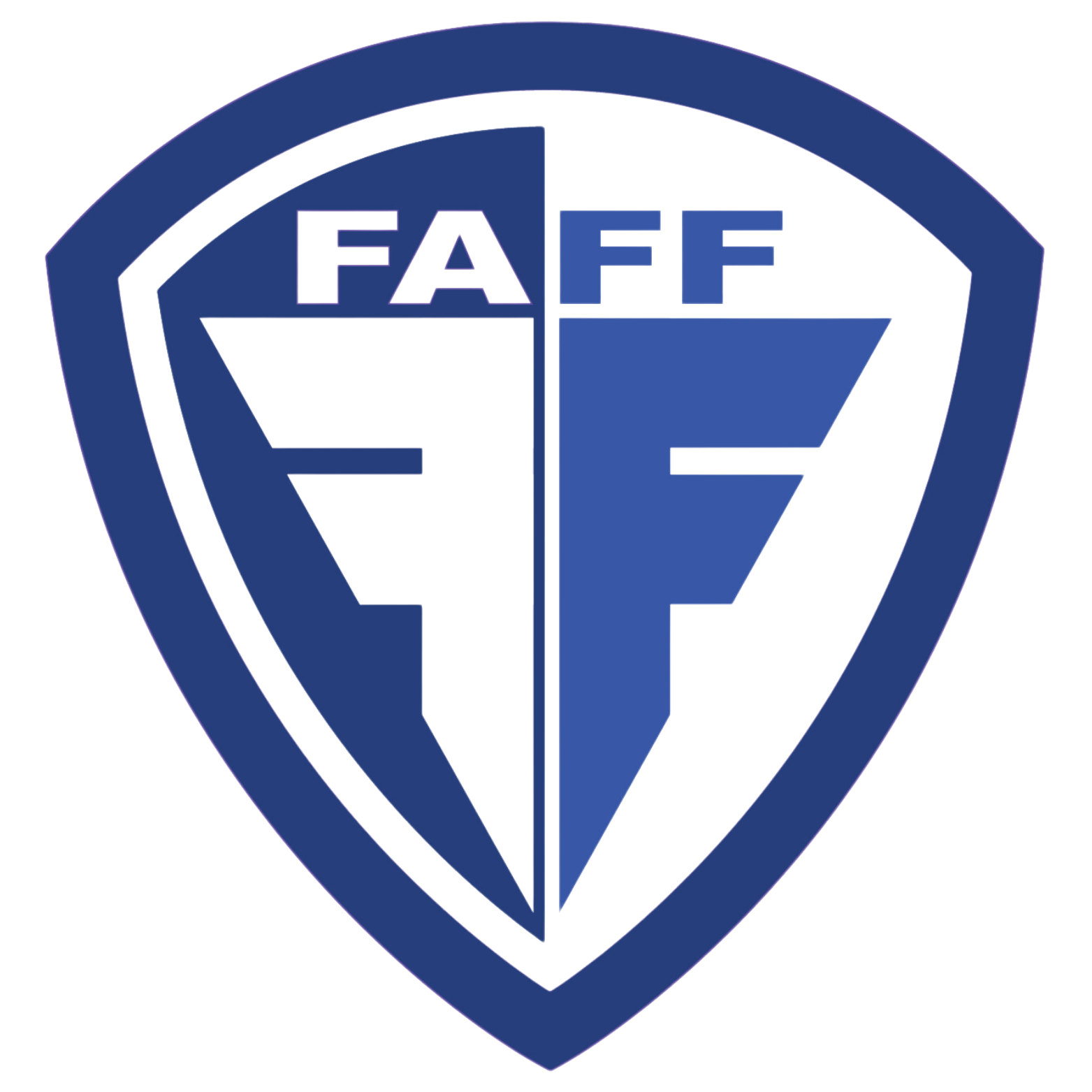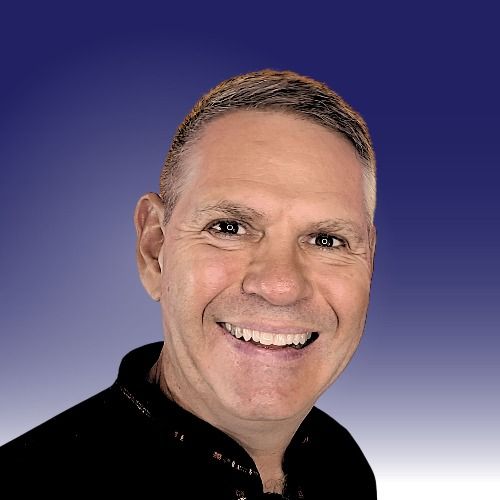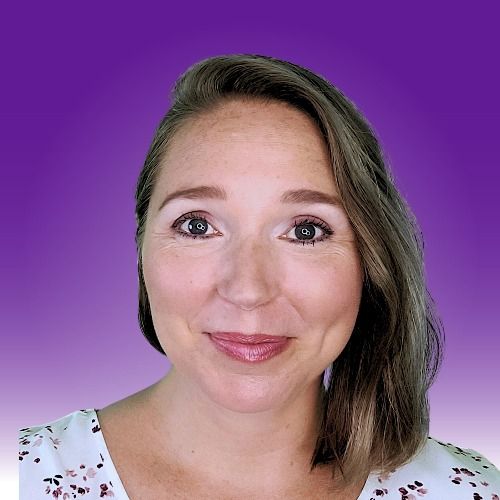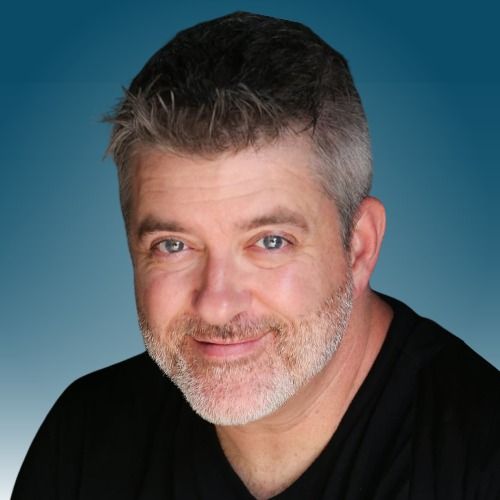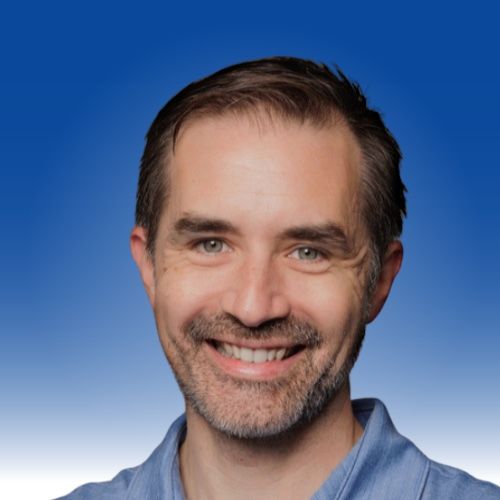Episode 31
The Art of Screenwriting: Insights from David Hyde
Episode 31 - The Art of Screenwriting: Insights from David Hyde
In this episode of the Faith and Family Filmmakers Podcast, hosts Geoffrey Whitt and Jaclyn Whitt talk with David Hyde, an award-winning screenwriter and script consultant, to discuss his journey into screenwriting, the process of working on different projects, and the special challenges that come with writing for someone else's vision. David shares insights from his career, including starting a screenplay at 19 and finishing it at 49, turning screenplays into stage plays, and consulting on various projects. He also talks about a unique project he's currently working on called 'No Address,' a drama that deals with homelessness, as well as his involvement in founding the Scripts4C screenwriting contest. The conversation extends into the dynamics of co-writing, the process of adapting scripts for different formats, and the importance of script consulting to refine and polish screenplays. David emphasizes the reciprocal nature of screenwriting—balancing personal creative visions with the expectations of clients or producers—and the importance of feedback in refining a writer's work. Highlights:
- Welcome and Introduction
- David Hyde's Journey into Screenwriting
- The Craft of Screenwriting: Challenges and Processes
- David's Current Project
- The Scripts4C Screenwriting Contest
- David's Dream Project and Writing Process Insights
- Dealing with Writer's Block
- Knowing Your Ending
- Collaborations and Expanding into Television
- The Role of a Script Consultant
- Closing Remarks and Additional Resources
David Hyde is an award winning screenwriter and owner of scripts4c.com screenwriting and script consulting service. David recently won the Movie Guide Kairos Award for the script Hope from the Ashes that he co wrote with Alice Bowden.
David's Story and Script Consulting Services: www.scripts4c.com
The Faith & Family Filmmakers podcast helps filmmakers who share a Christian worldview stay in touch, informed, and inspired. Releasing new episodes every week, we interview experts from varying fields of filmmaking; from screenwriters, actors, directors, and producers, to film scorers, talent agents, and distributors.
It is produced and hosted by Geoffrey Whitt and Jaclyn Whitt , and is brought to you by the Faith & Family Filmmakers Association
Support Faith & Family Filmmakers Our mission is to help filmmakers who share a Christian Worldview stay in touch, informed, and inspired. If you would like to assist with the costs of producing this podcast, you can help by leaving a tip.
Enter the Faith & Family Screenwriting Awards festival
Faith and Family Screenwriting Academy: https://www.faffassociation.com/
Script Notes and Coaching: https://www.faffassociation.com/script-services
Copyright 2024 Ivan Ann Productions
Transcript
Welcome to the Faith and Family Filmmakers Podcast with Geoff and Jaclyn Whitt.
Geoff:We're happy to have you here today and to be talking with screenwriter and script consultant, David Hyde.
Jaclyn:David Hyde is a multi optioned award winning screenwriter and owner of scripts4c.com screenwriting and script consulting service.
Jaclyn:David recently won the Movie Guide Kairos Award for the script Hope from the Ashes that he co wrote with Alice Bowden.
Jaclyn:Welcome to the show.
Geoff:Welcome David.
David:Oh, thank you.
David:Thank you for having me here.
David:This is great
Jaclyn:It's another screenwriter, a fellow screenwriter.
Jaclyn:It's exciting to have you here.
Jaclyn:Uh, I always love talking to screenwriters.
Jaclyn:One, because I get to connect with them because we can relate, but I also love to learn things that other screenwriters know that I don't yet.
Jaclyn:And so I'm looking forward to getting into some of that later on.
Jaclyn:But first, can we just get to know you a bit?
Jaclyn:Like, how did you get started?
Jaclyn:started in screenwriting.
David:I actually started my first screenplay when I was in college at 19 years old.
David:My mother had given me a book to keep me busy over summer break and it was just a book that I read that it's like, this has to be a movie.
David:So I started playing around with it.
David:I was in...
David:I was a business major, so I wasn't in theater arts or anything related to it.
David:It was just a curiosity.
David:You know, and that was fun, but I never finished it.
David:I put it aside and, you know, I got my business degree and went out and got a job and uh, came back to it later.
David:So the joke is, I started my first screenplay when I was 19.
David:I finished it when I was 49 ...and just, you know, fell in love with it.
David:I've always been a writer.
David:I've always enjoyed writing.
David:But, fell into screenwriting and just have really enjoyed it.
Jaclyn:So you've done other writing as well?
Jaclyn:Like, have you written novels or short stories...
David:I have written short stories.
David:I am a published playwright.
David:I'm a published poet.
David:I wrote a, uh, a book review column for a number of years.
David:Now pretty much 100% screenwriting, other than I did turn one of my screenplays into a stage play last summer, so...
Jaclyn:Well, that's exciting.
Jaclyn:Okay.
Jaclyn:so how many screenplays have you written?
Jaclyn:I'm not going to ask your age, but if you said basically you started at 19 and then you picked it up again at 49, how many screenplays in are you?
David:I have lost count, but I would...
David:my my go to answer is 12.
Jaclyn:Okay.
Jaclyn:Awesome.
David:In that range.
David:Yeah.
David:And I've consulted and I've done rewrites on some where I didn't...
David:they're not original screenplays.
David:I wrote them for other people or did parts for other people.
Jaclyn:Okay, so what is it like working on your own idea versus somebody else's idea when that's their project and you have to fit into their vision?
Geoff:That's a good question.
David:Uh, that's tough.
David:That is a different skill set when you're writing your own work, I mean, it's just you and your creative mind.
David:And you can just create characters where you want and, you know, eventually when you sell that script to a producer, then you're going to have to make it fit their vision anyway.
David:So it's all part of the process.
David:But yeah, jumping into a project in the middle...
David:or somebody else's idea, it's a different challenge.
David:I enjoy the challenge, but yeah, you're having to fit it into their vision.
David:So there's a lot of back and forth, a lot of conversation, that goes on.
Jaclyn:Yeah, I can imagine.
Jaclyn:Well, I do know.
Jaclyn:Because I do find it to be very different also.
Jaclyn:Like, I love when I get to be in charge of the vision and I can write it how I want it to be and rewrite it how I need it to be.
Jaclyn:But, um, yeah, when I work with other people and they're like, Oh, I don't like that.
Jaclyn:I want it this way.
Jaclyn:And I'm like, Oh no, but you don't understand.
Jaclyn:But no, I need to adjust to what they want because it is their project.
Jaclyn:Yeah, so it comes with its own challenges.
David:And that's the give and take.
David:I mean, you're, . Supposedly the expert in the telling of the story.
David:They have their vision of what they want their story to be, but then you have to put it on paper.
David:So there's some give and take on both sides..
David:In a good working relationship, you're going to have some give and take that you're going to have ideas that, you're going to be able to talk them into.
David:And as long as you have a reason for why that this is going to work, you're going to get to the same end goal together.
Jaclyn:Mm hmm.
Jaclyn:Yeah.
Jaclyn:And so what are you working on right now?
David:Right now I'm working on a project that is kind of unique, it's a first for me, is I'm writing pickup scenes for a film that's, actually the principal photography is already done.
David:And so they're bringing, they're bringing some of the actors back.
David:They decided they wanted a few more scenes to finish out the film, to kind of round out the story.
David:So I'm fitting in scenes where they want to fill in some gaps.
David:So I've got to marry it to what's already been shot.
David:So yeah, the film's called No Address.
David:it's Robert Craig Films.
David:it's a really good project.
David:Um, I'm enjoying it.
David:It's kind of a different feel for me.
David:That's...
David:it's a story of a young girl that ends up homeless, so thus the name No Address, and everything she goes through in learning how to live on the streets.
David:It's a good project.
Jaclyn:What genre is it?
David:It's a drama.
Jaclyn:Okay.
Jaclyn:Is it faith based?
David:It has faith elements.
David:Um, they're co op with the Salvation Army,
David:in the production.
David:So, um, there's a lot of that, in there where they're, helping with the production with scenes and sites and locations.
David:So, it's a really good story.
David:And, it's one that has a good message.
David:I'm enjoying being able to contribute to it.
Jaclyn:I know also that you have, a festival for writers.
Jaclyn:So you started that, was it in 2023?
David:We did a kind of small run in spring of 2023 through scripts4c.
David:com, the website...
David:Through film freeway.
David:We did a small one with just comedy scripts because I've written comedy and I've written drama and I always...
David:I always enjoy comedy, but comedy doesn't win contests when you're competing against dramas.
David:The dramas always win.
David:So I wanted to give comedy writers a chance.
Jaclyn:And I very much appreciated that.
Jaclyn:I actually entered.
Jaclyn:I didn't win first, but I, I know I was up against some really good writers.
Jaclyn:The scripts that did win, I had actually read them, and so I knew, like, well, I knew that they were better than mine anyways, so I could definitely see that.
Jaclyn:But, right away you seem to get the attention of some really good writers.
Jaclyn:Even though it was like a new festival, I was up against some pretty stiff competition.
David:There were some great scripts.
David:We did it again in the fall with just a general category.
David:Of course, that by itself just opened it up to more writers, so...
David:And the plan is to just do that every year.
David:We'll open it up next June, so it'll run from June and we'll do the same thing.
David:We'll announce the winners in December and you know, the goal is to just help writers.
David:It helps you get your name out there It helps, helps you get exposure, and we're glad to do it
Jaclyn:Are you going to continue to do the comedy festivals, specific for comedy?
David:We're gonna think about that one.
David:It was a lot smaller, so I'm not sure if we're going to continue to do both.
David:Um, but definitely the general entry contest in the fall.
Geoff:So it's on FilmFreeway, and can you tell us the name?
David:It's Scripts 4C Faith and Family Screenwriting Contest.
Jaclyn:Do you have a screenplay that is something that it's like, you really, really, really want this one made?
David:Yeah.
David:Yeah.
David:I think.
David:Every writer that has multiple projects has one of those.
David:I wrote one a couple of years ago.
David:It was a drama.
David:I had just written a comedy and sent it out to all the contests and that's when I found out that comedies don't win.
David:It did well, but it didn't win.
David:So, I decided I needed to write a drama.
David:And, I wrote The Sound of Everything.
David:which has done very well in contests.
David:now has Cameron Arnett attached to play the lead.
David:It's also the one that I actually converted into a stage play.
David:Al Turner company here locally in Northern California is looking to produce it on stage.
David:That one is, just really heartwarming, heart wrenching in many ways, drama.
David:It's about a blind man who gets befriended, by a young girl who's dying from cancer.
Jaclyn:Oh, wow.
David:So a lot of tension and ups and downs in that one.
David:It's the one that I would put first and foremost of what I've written that I'd love to get made.
Jaclyn:And so do you have a particular process that you go through when you have an idea and you need to write a script, or let's say if somebody comes to you with an idea, and you need to write it?
David:Yeah, the first draft is always the toughest draft...
David:just hammering out the story.
David:Sometimes the ideas just come.
David:Sometimes there's a lot of research, and I always do a film study.
David:I always go out and find a film that is in the same genre, in the same type as what I'm trying to write.
David:And I sit down with a pen and paper and I watch the film and say, what did they do that works?
David:What is their story arc?
David:And I just take that film apart.
David:And in many ways...
David:you know, you don't copy it, but you mimic it, I guess is a way to say it.
Jaclyn:Yeah, well, there's nothing new under the sun.
David:True.
David:Yeah,
Jaclyn:I was watching a movie last night where, I was expecting things to turn out a certain way because it's kind of typical.
Jaclyn:Like, you know, where basically it's this young girl that has to find a man to pretend to be her father so that she can get him to give her permission to enter this contest.
Jaclyn:And so that type of thing, usually it ends with the mother and the fake dad ending up together in some kind of romantic situation.
Jaclyn:But the story didn't go there at all.
Jaclyn:They ended up respecting each other in the end.
Jaclyn:But, you know, I just, I really appreciated that they kept the relationship and the focus on the girl and the man, who ended up kind of playing that fatherly role in her life.
Jaclyn:And so, I like to be able to watch other movies to see, like, what do they do, but I also enjoy being able to say, okay, well, I maybe don't want to go "there" with it, and so maybe what are those things that kind of would lead you in that direction, and then I got to stay away from that.
Jaclyn:Because, you know, as soon as you introduce certain elements, it's like, well, that's a setup.
Jaclyn:You know where the story's going as soon as that happens, right?
David:Right And the key is you want to keep the audience on the edge of their seat, not falling asleep in their seat.
Jaclyn:Exactly, exactly.
Jaclyn:Have you ever been stuck on one?
David:Usually when I get stuck, I just move to a different project and work on that for a while and come back.
David:That's my freebie.
David:That's my cure for writer's block right there.
Jaclyn:Me too.
David:So no, I don't really get stuck on one.
David:There'll be times where I'll have to pull it back because I'll, I'll just be writing and my characters will take off in a direction that I didn't expect them to go in.
David:It's like, wait a minute.
David:We're supposed to be storming the castle, what are you doing over there?
Jaclyn:So how do you deal with that?
Jaclyn:Like, because there's a bit of a balance with that.
Jaclyn:Like, on the one hand, you need to let your characters have that free will, you know, in that sense.
Jaclyn:But at the same time it's like, well, I need the story to go this way.
Jaclyn:So how do you manage reigning in your characters without overpowering them?
David:Well, and I think, screenwriting, it's always in three acts.
David:You know, you have your introduction, you have your middle, and then you have your ending.
David:I always start with outlining, so I know where I'm going.
David:To know what the ending is going to be as a writer, you need to know where you're going.
David:And how you get there is, 80 percent of the project, everything in the middle.
David:And you throw in your twists and turns, but you always have to keep that ending in mind.
David:Everything has to eventually point there.
David:That's just the art of it, that you have to be aware of where it's going.
David:And sometimes you have to go back, and you have to cut a scene, you know?
David:You have a wonderful scene that you absolutely love, but it's not going in the right direction.
David:You have to save it for the next project, I guess.
Jaclyn:Yeah, I had one like that where, um, I was writing it with somebody else.
Jaclyn:It was his project originally, and then I was brought in to, you know, polish it.
Jaclyn:And I had this brilliant ending.
Jaclyn:I loved it.
Jaclyn:I thought, oh, this wraps everything up so nicely.
Jaclyn:And he was like, no, I don't want to go there because this is actually just the first of a trilogy.
Jaclyn:And that takes the whole story, the whole world in a different direction.
Jaclyn:And that's not where I want to go.
Jaclyn:I was like, oh, but, but can't we make it work?
Jaclyn:Because look how beautiful this ending is.
Jaclyn:Everything wraps up.
Jaclyn:It's all connected.
Jaclyn:And he's like, No.
Jaclyn:It was so hard to go back and undo it.
David:My response to that would be, that would have been good to know before I started it.
Jaclyn:Yeah.
Jaclyn:Yeah.
Jaclyn:Well, there was a lot about this world that he created that, I tried to get more information about it, but it's, it's just very complicated, so it was hard for me to wrap my head around without the stories.
Jaclyn:Like, if I knew all the stories, then, you know.
Jaclyn:But we got it figured out, it's all good.
Jaclyn:Do you ever work cooperatively with other writers, like co writing and stuff like that?
David:Yeah.
David:I've co written three different scripts.
David:Just recently finished a, um, animated Christmas special, G.
David:Michael Nicolosi is the producer on it.
David:He and his son had started writing it.
David:And they brought me in.
David:That was just a lot of fun.
David:I enjoy co writing because you just bounce ideas off of each other I think the end product...
David:you hope it's going to be exponentially better because you have more voices to feed into the script.
Jaclyn:And do you also write television, like series, or just features?
David:I actually started...
David:I mentioned Al Turner Company, and my first job with them was to write a pilot and the first couple of episodes for a, uh, limited series, a 10 episode series that they're pitching to a streaming service.
David:They needed a couple of scripts to show them.
David:Hopefully that one gets picked up, because that one was a fun project too.
David:I just enjoy writing.
David:All my projects are fun.
Jaclyn:Yeah, I know what you mean.
Jaclyn:I love writing,
Geoff:So David, I know from your website that you do a lot of consulting, and that's big part of what you do...
Geoff:actually helping people take their scripts from where it is to where it needs to be.
Geoff:In fact, I, I know you have, people who really like what you do.
Geoff:You have, really good reviews, if that's the right word, really good testimonials, maybe that's a better word.
Geoff:Tell us a little more about that.
David:For me, it's, it's a way of giving back.
David:I mean, I've been doing this for quite a while now and I've taken the classes, I've gone through the courses, and gotten the feedback myself, so I get it.
David:I know where people are coming from when they're, they've got their script, and, we just want it to be the best it can be.
David:There are certain things you watch out for, and sometimes you're just too close to the project, I guess is a way to say it.
David:just t need another set of eyes on it.
David:And, I try to be nice.
David:You know, you give positive feedback and you give them ideas, and whether they use them or not is up to them.
David:But it's just from my perspective, which is a different perspective from theirs, so...
Geoff:Mm hmm
Jaclyn:Is there anything that you would like to share with our listeners before we finish this portion of the interview?
David:Well, just talking about the website.
David:You know, we do script consulting, we do script notes.
David:For producers we do coverage.
David:If they have a number of scripts that they're trying to choose between, we'll read them for them and give them notes back.
David:And then of course we also do original screenplays and rewrites and all that stuff.
David:Scripts4c.
David:com.
David:Easy to remember.
Geoff:It's with the number 4 right?
David:With the numeral four, yes.
David:Scripts, numeral four, letter C, dot com.
David:Yes, thank you.
Geoff:Good, well it's been good to have you, David.
Jaclyn:Thank you so much for being on our show.
Jaclyn:And for our members, we're going to see you for another portion of this interview, a more extended portion where we're going to talk more about what film festivals look for in screenplays, as well as the things that, as a script consultant, David has come across, and things that people can look for that very simply, they can take care of that detail even before it has to be sent out.
Jaclyn:So join us there.
David:Thanks.
